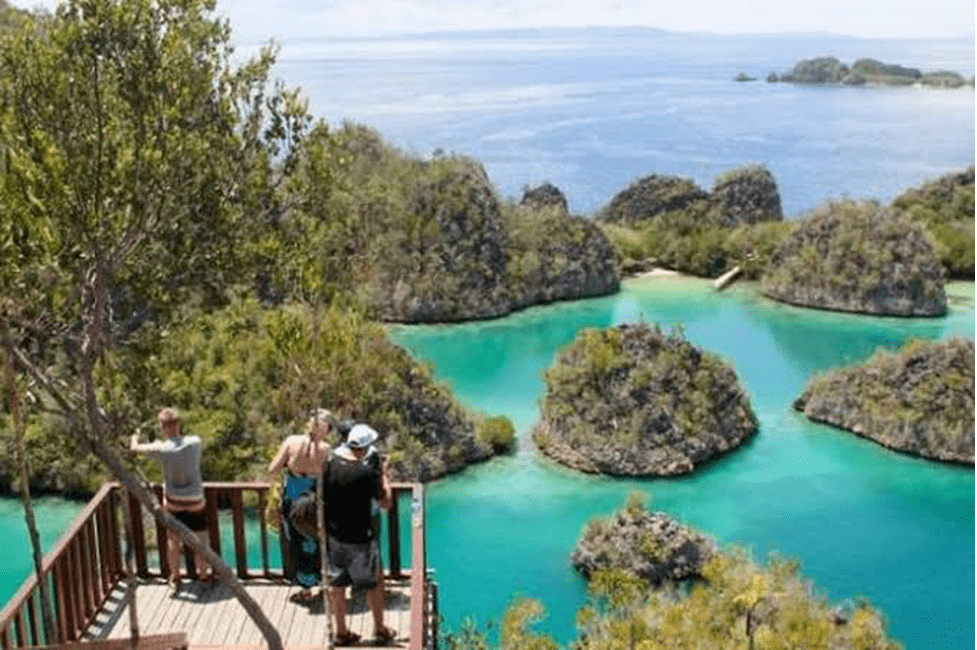West Papua, a province at the eastern tip of Indonesia, is known for its enchanting natural beauty, unique cultural richness, and underexplored tourism potential. The tourism sector in West Papua offers promising investment opportunities for investors who dare to explore this relatively virgin region. Here are some aspects that make the tourism sector in West Papua have great potential to be developed.
West Papua has several stunning natural tourist destinations. Raja Ampat, for example, is renowned as one of the best diving destinations in the world with its incredible marine biodiversity. Unspoiled coral reefs, white sandy beaches, and clear seawater are the main attractions that attract domestic and foreign tourists. In addition to Raja Ampat, there is Cenderawasih Bay, which is a habitat for whale sharks, and the Arfak Mountains, which offer beautiful mountain scenery and a diversity of flora and fauna.
West Papua is also rich in unique local culture and traditions. The indigenous people of West Papua have a variety of traditional dances, carvings, and handicrafts that appeal to tourists. Cultural festivals, such as the Lake Sentani Festival and Baliem Valley Festival, can be additional attractions that enrich the tourist experience. Investment in the development of facilities and infrastructure to support this cultural tourism has the potential to provide long-term returns.
In addition to conventional tourism, West Papua has great potential for ecotourism. Large areas of tropical rainforest and diverse biodiversity offer opportunities for the development of sustainable nature tourism. Ecotourism can include activities such as trekking, birdwatching, and educational tours that emphasize environmental conservation. Investments in ecotourism facilities, such as eco-lodges and trained tour guides, can attract a market segment of tourists who care about nature conservation.
The Indonesian government continues to improve infrastructure in West Papua to support the tourism sector. The development of airports, ports, and highways connecting major tourist destinations is a major focus. This improved accessibility will make it easier for tourists to reach West Papua and increase the number of visits. Investors can take advantage of this infrastructure development by building hotels, restaurants, and other supporting facilities around tourist destinations.
The Indonesian government pays special attention to tourism development in West Papua through various programs and incentives. Policies such as providing ease of licensing, tax incentives, and promotional assistance are additional attractions for investors. In addition, the government also encourages the participation of local communities in the tourism industry to ensure equitable economic benefits. This government support provides security and stability for investment in West Papua’s tourism sector.
Although investment opportunities in West Papua’s tourism sector are promising, several challenges need to be overcome. One of them is the issue of security and political stability in the region. In addition, the lack of human resources trained in tourism is also an obstacle. To overcome these challenges, cooperation between the government, the private sector, and the community is needed to create a conducive environment for tourism development. Training and education for local communities are also important to improve service quality and competitiveness of tourist destinations.
With outstanding natural beauty, unique cultural richness, and strong government support, the tourism sector in West Papua offers very potential investment opportunities. Investors who dare to take the step to invest in this region have the potential to earn huge profits while contributing to local economic development and environmental preservation. With the right strategy and good cooperation between various parties, West Papua can become one of the leading tourist destinations in Indonesia and the world.


